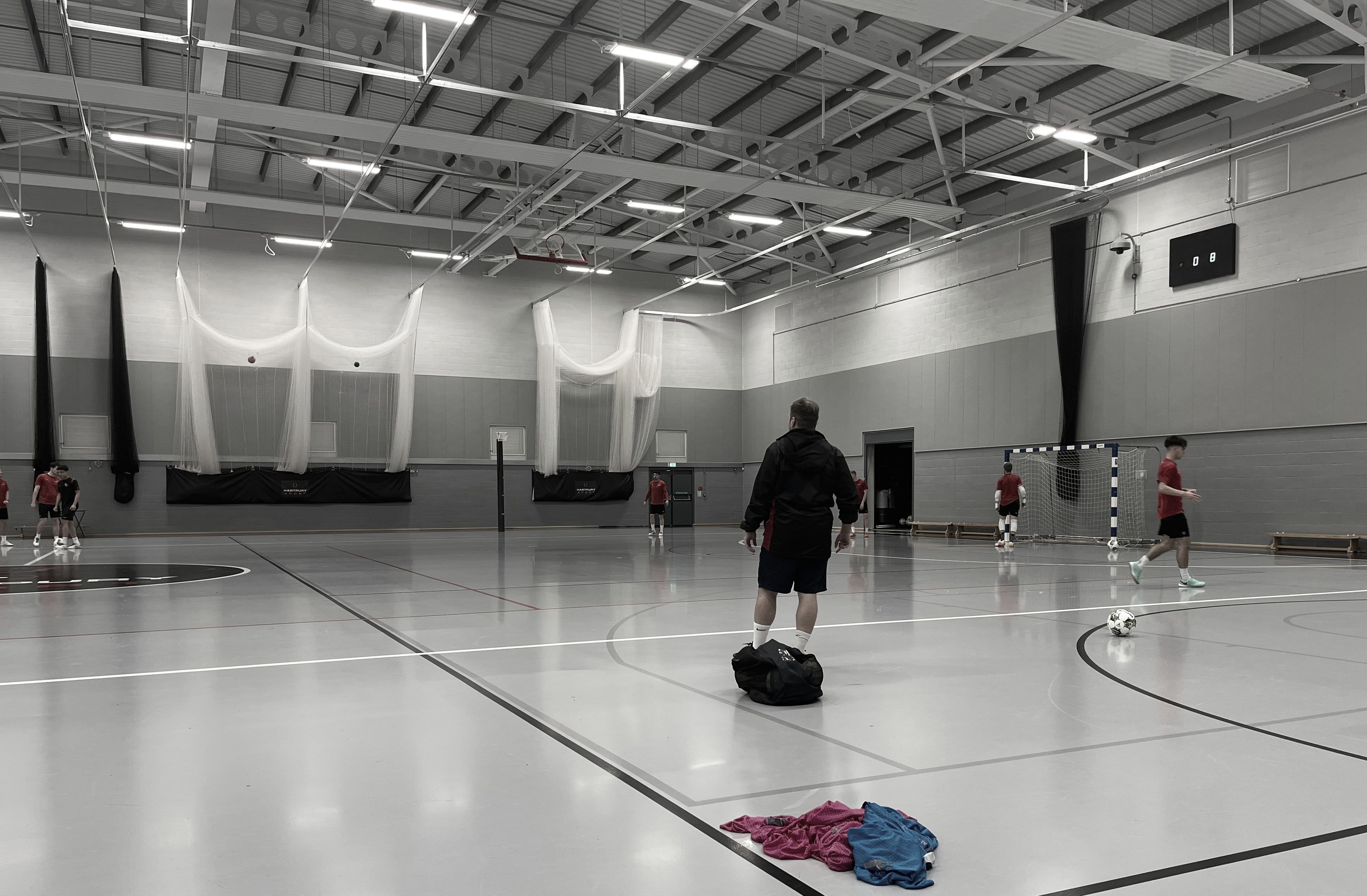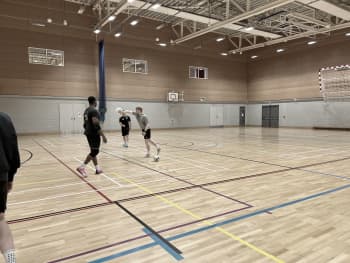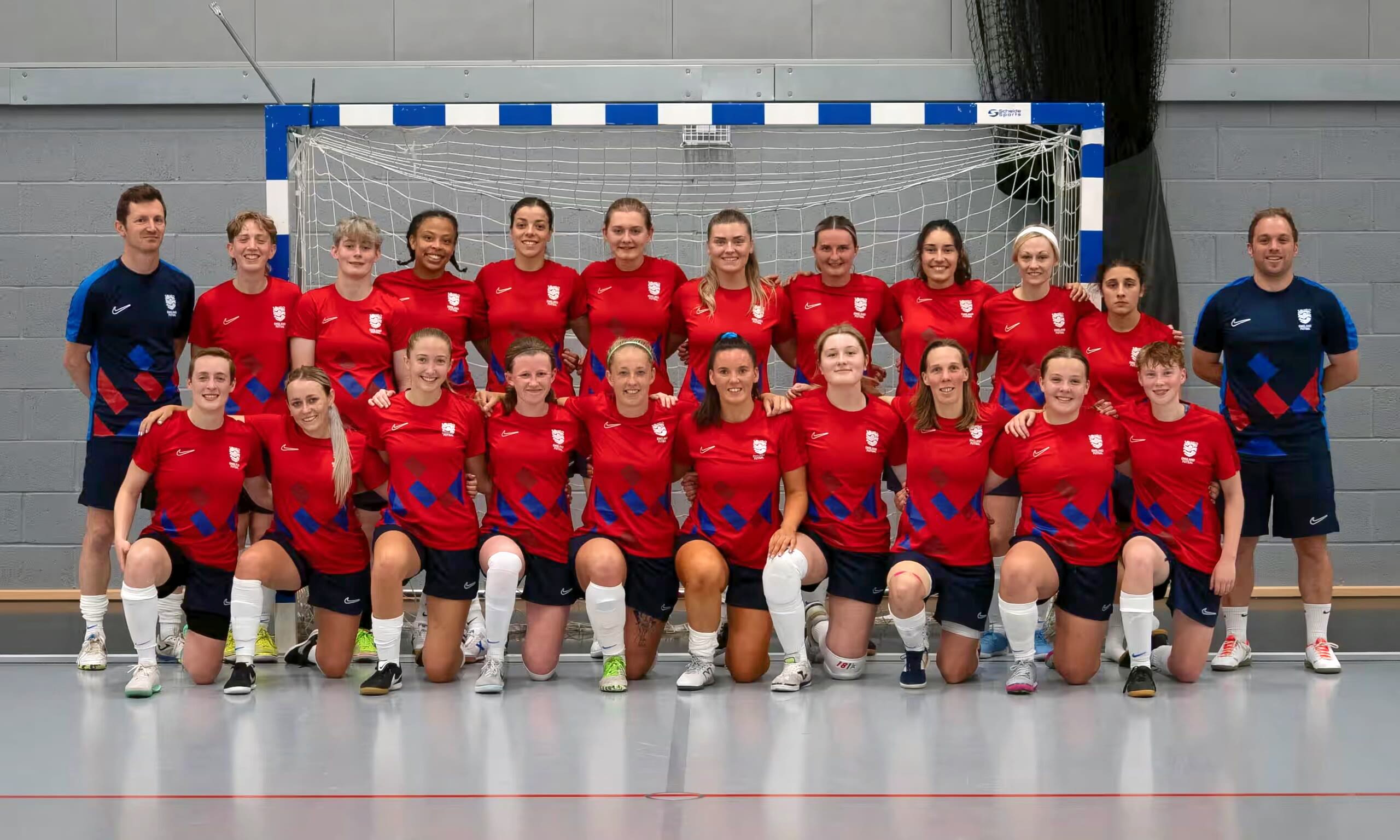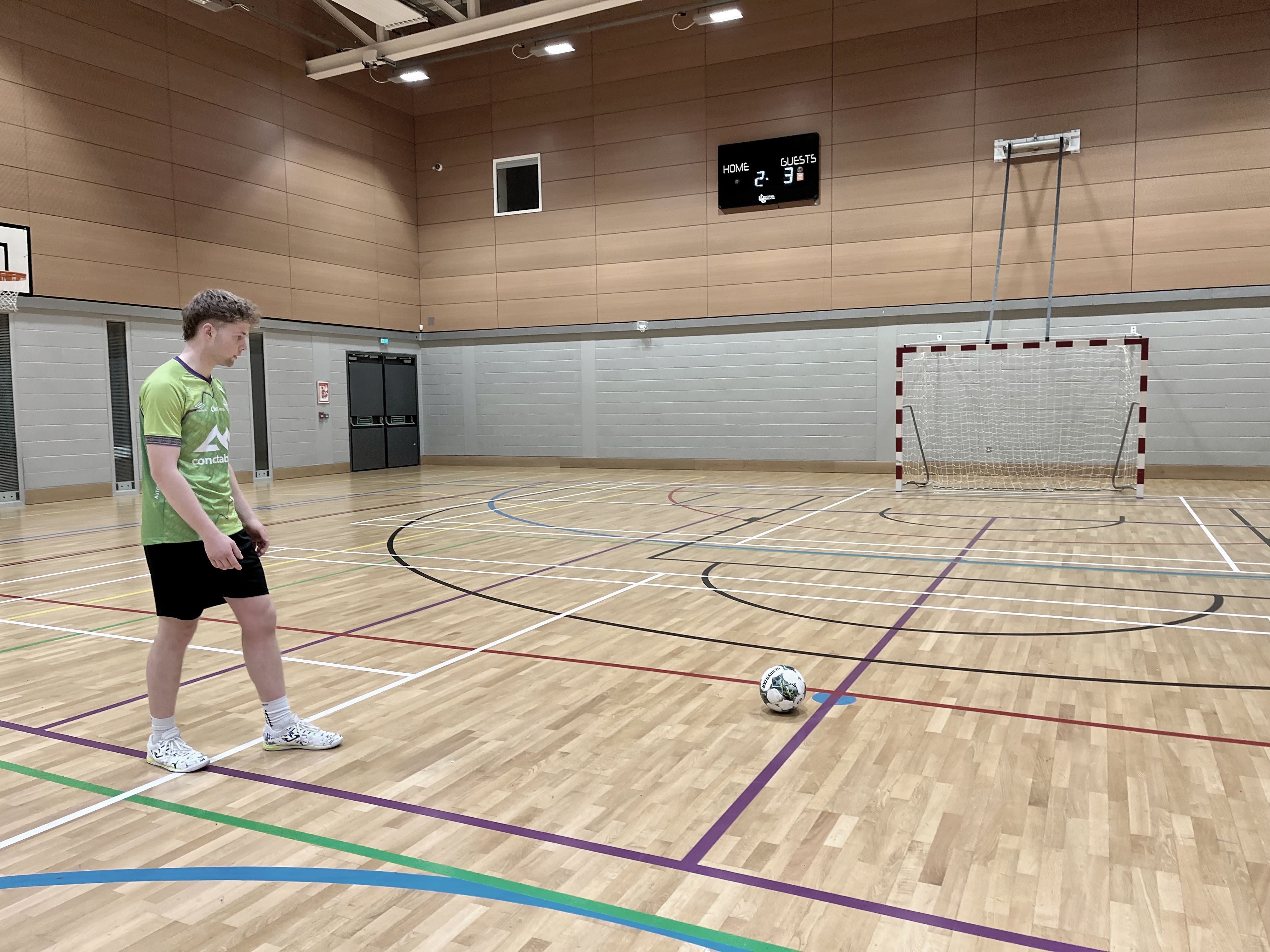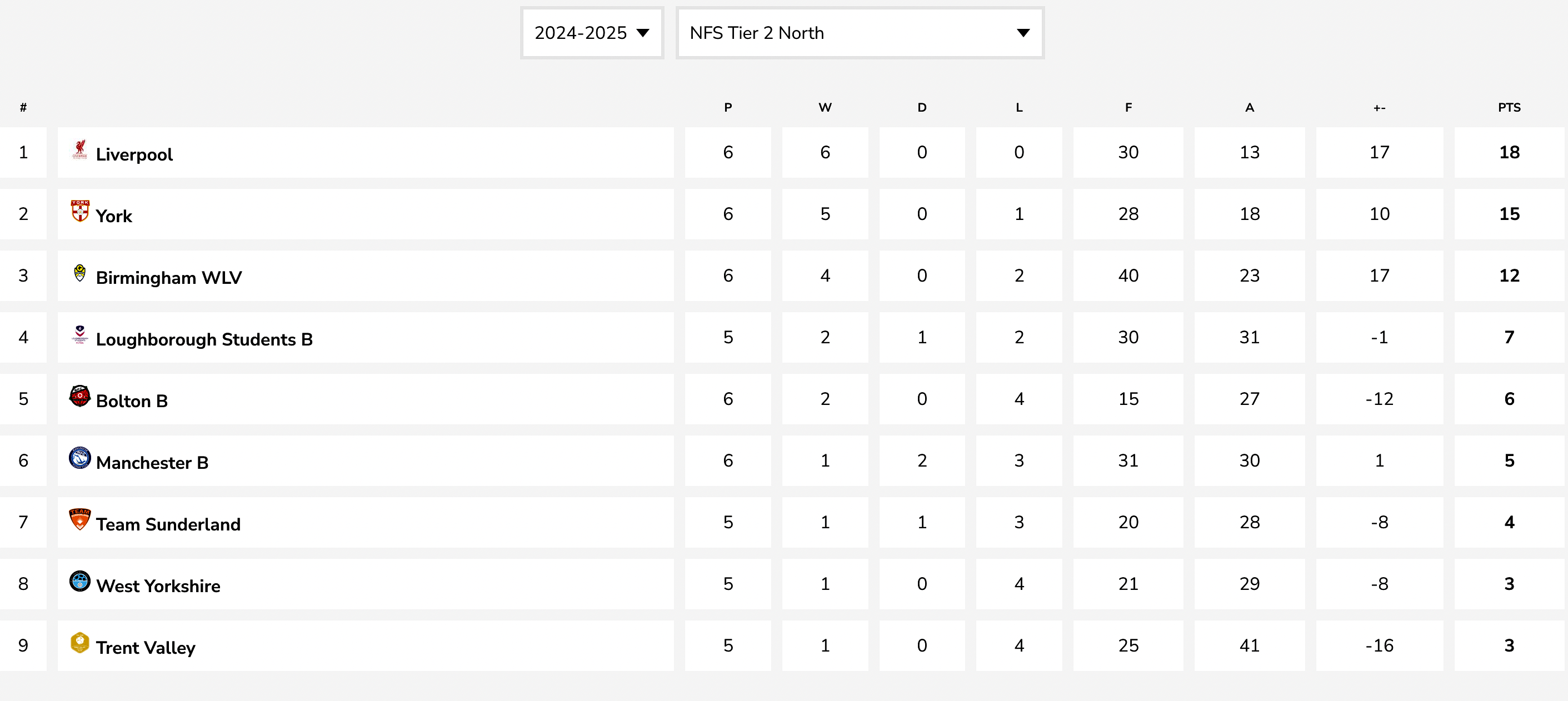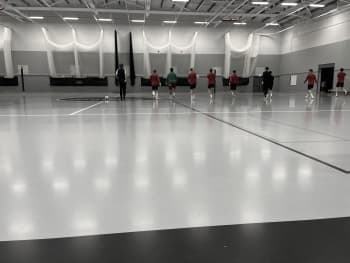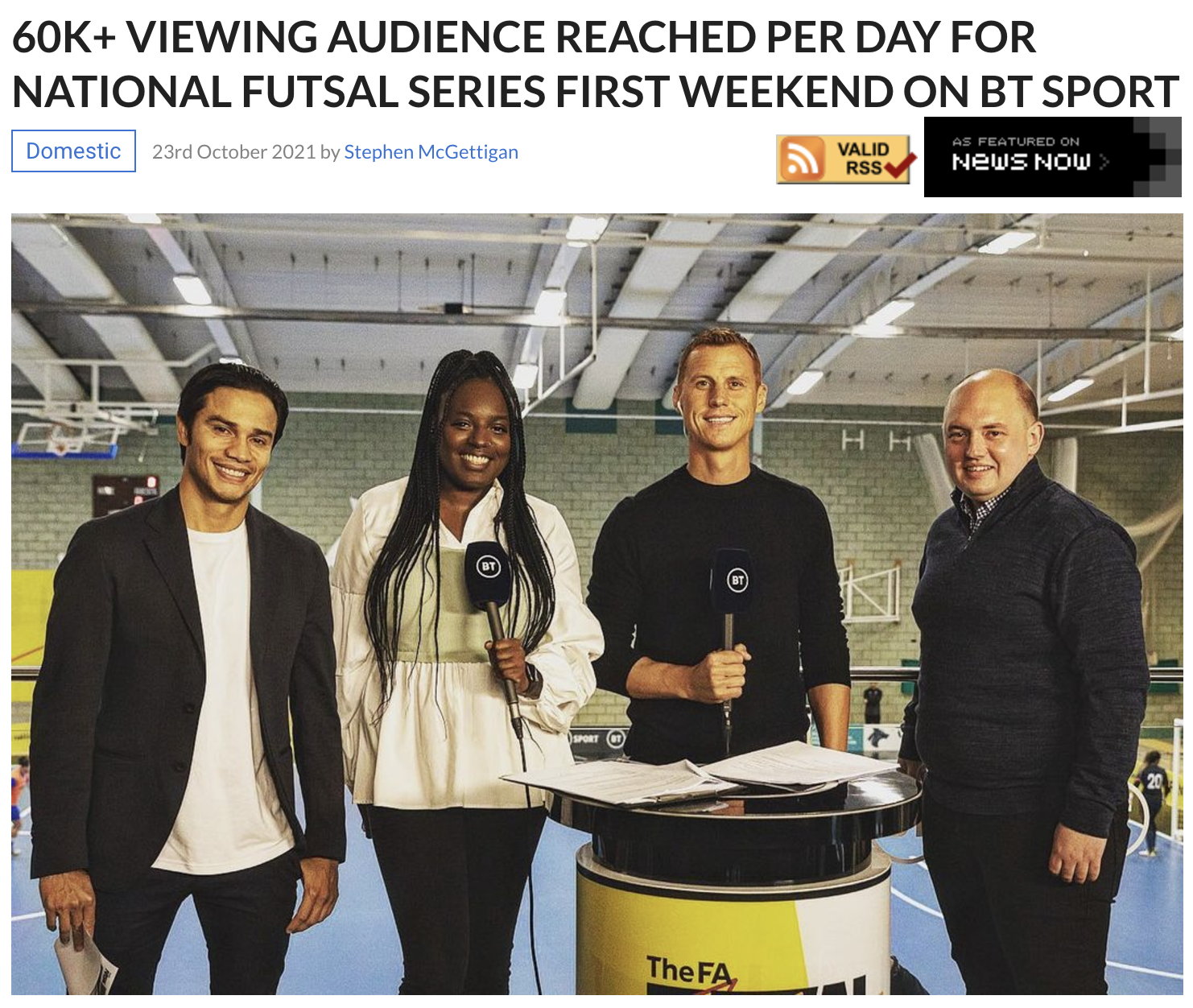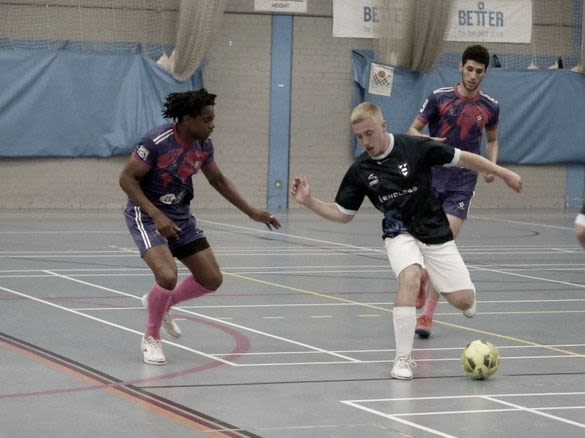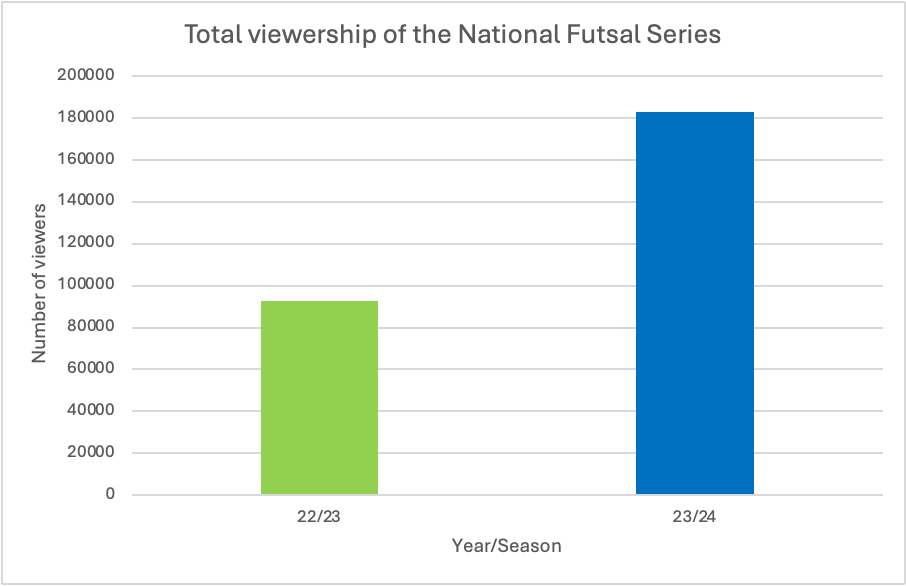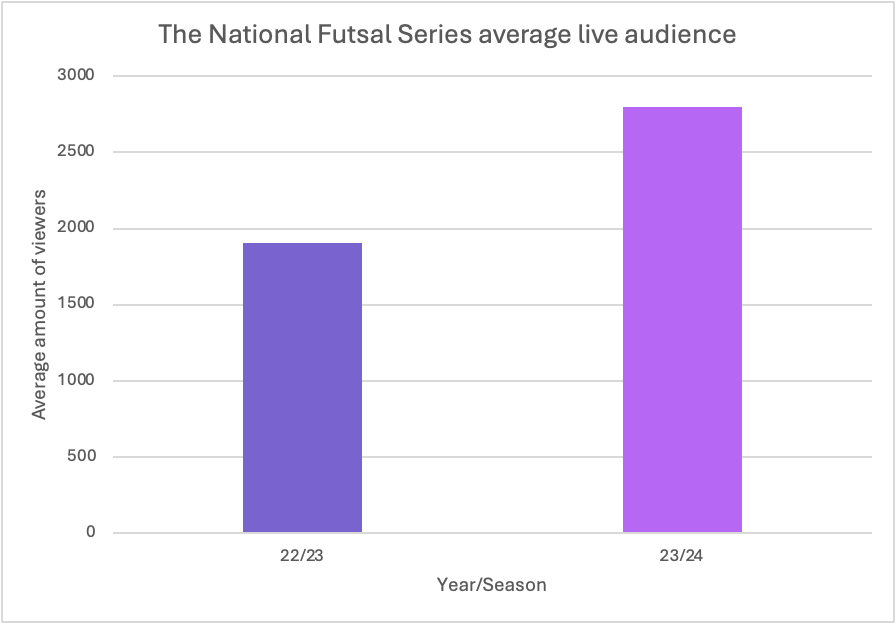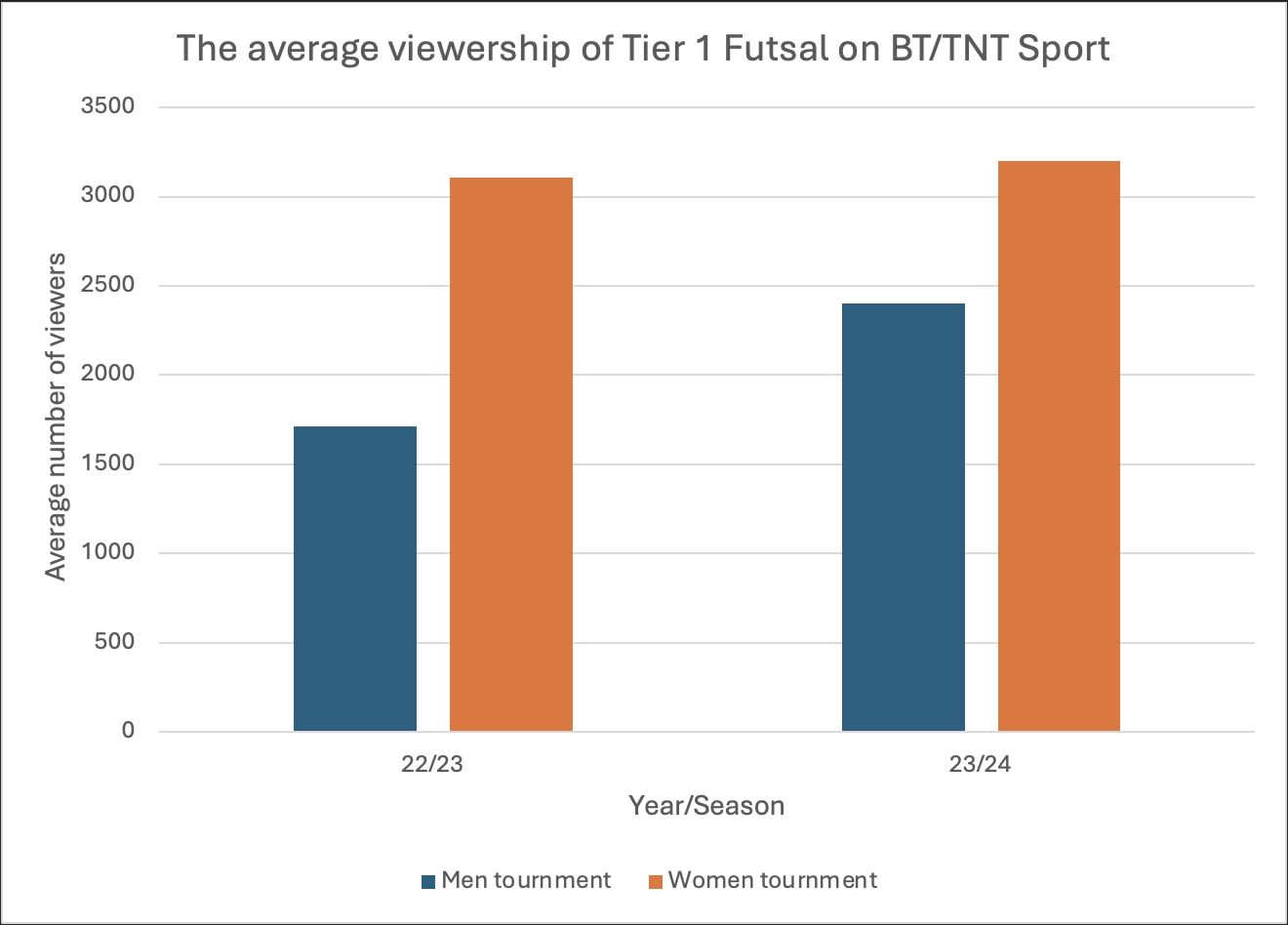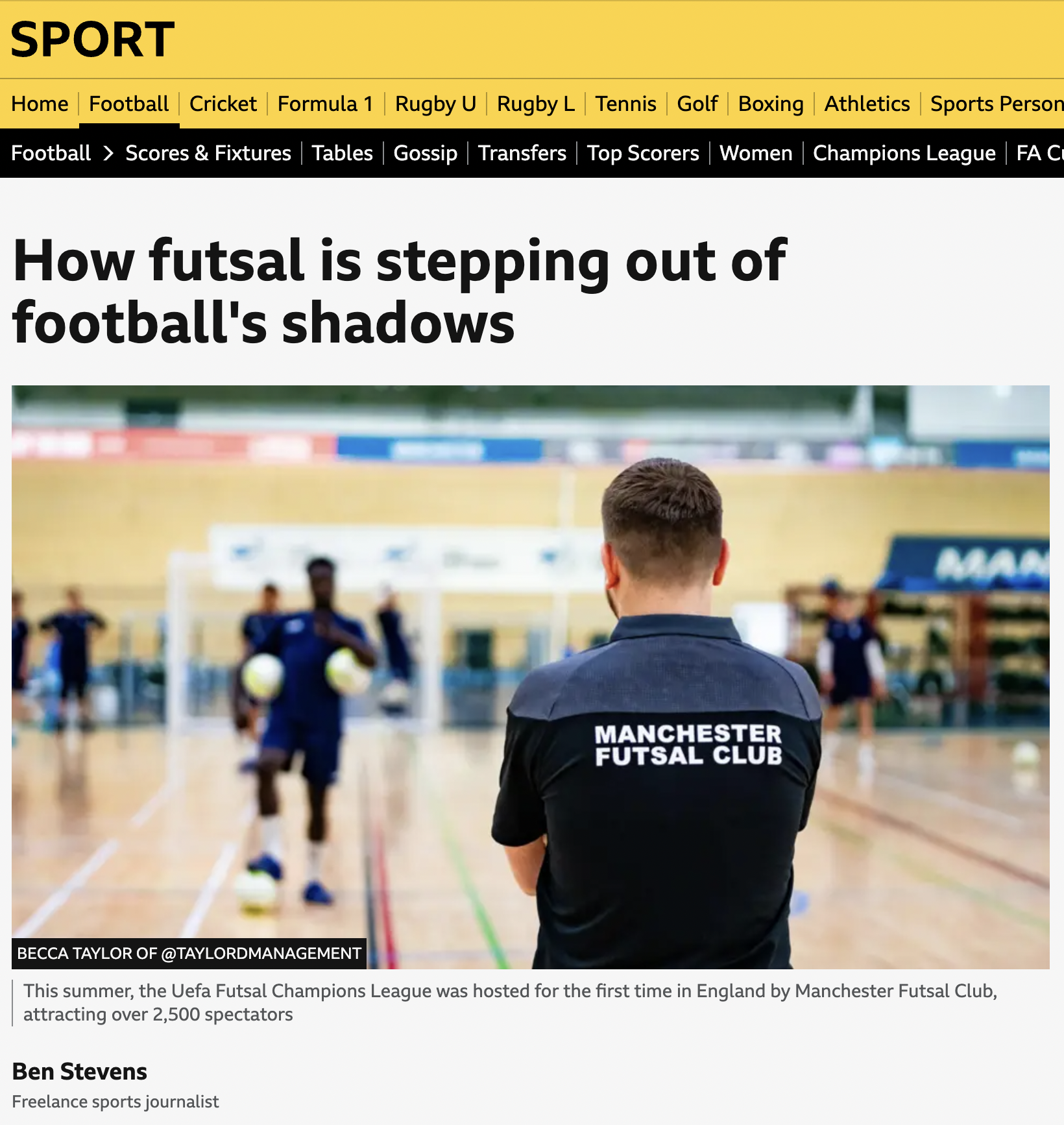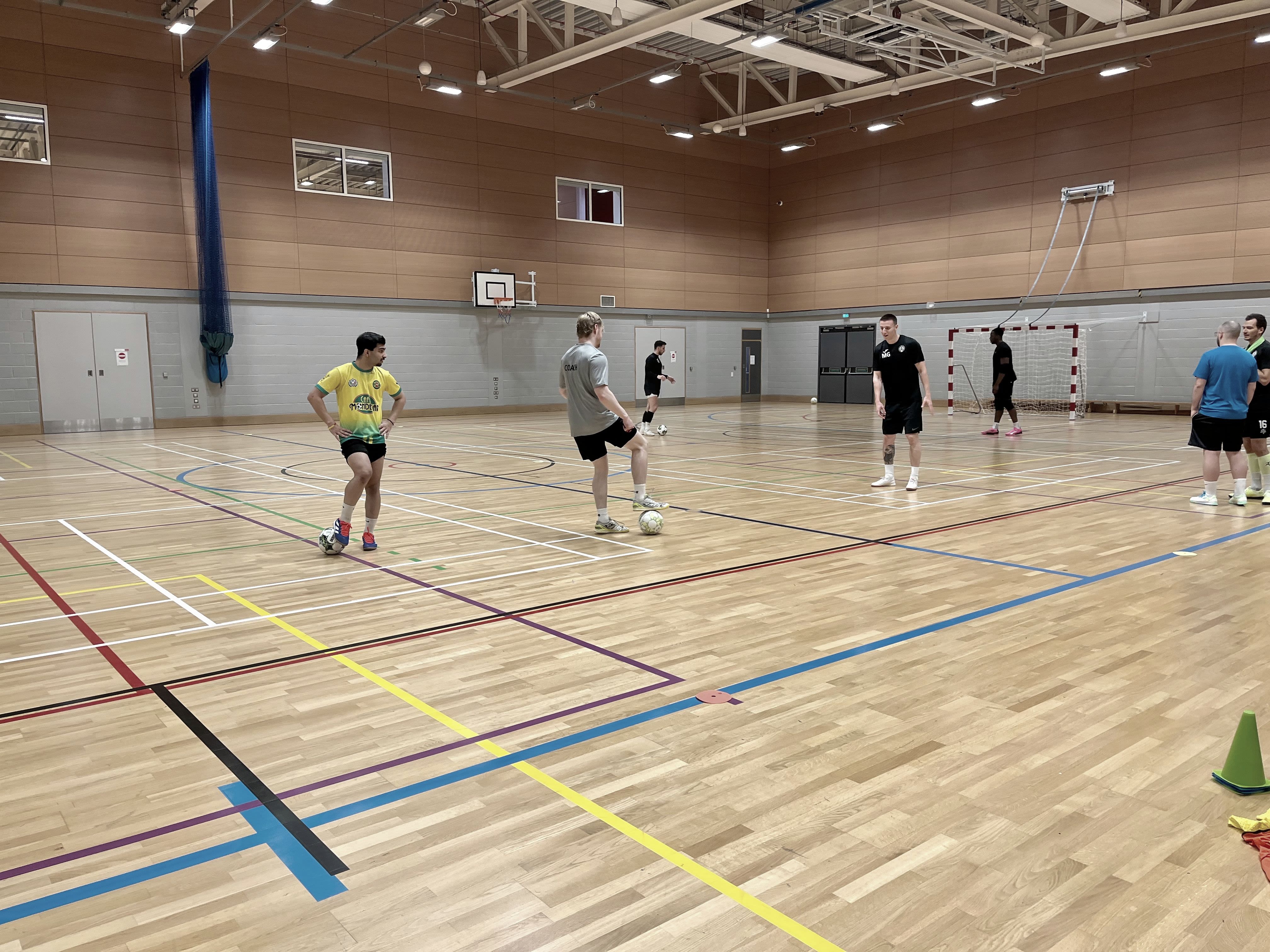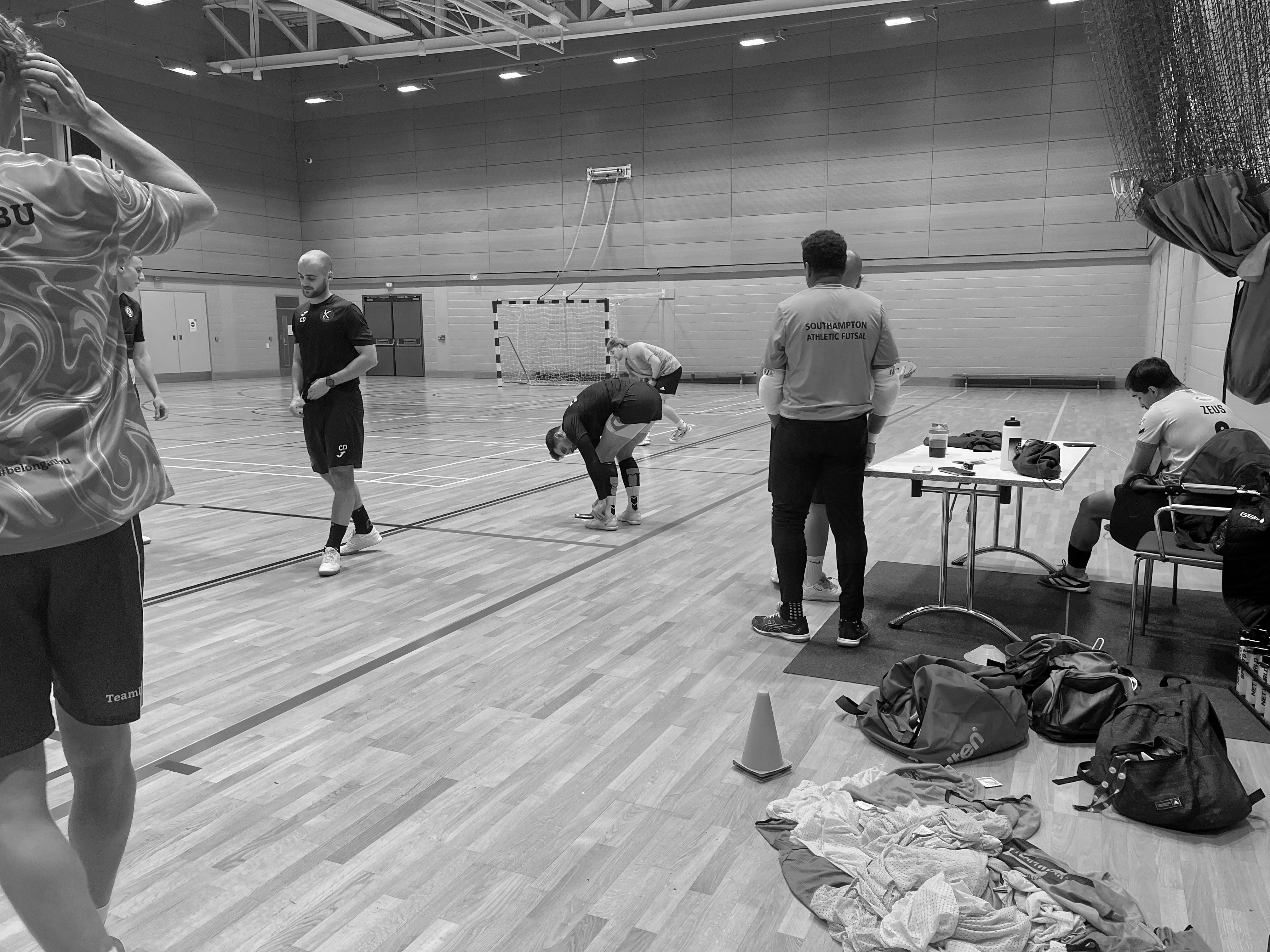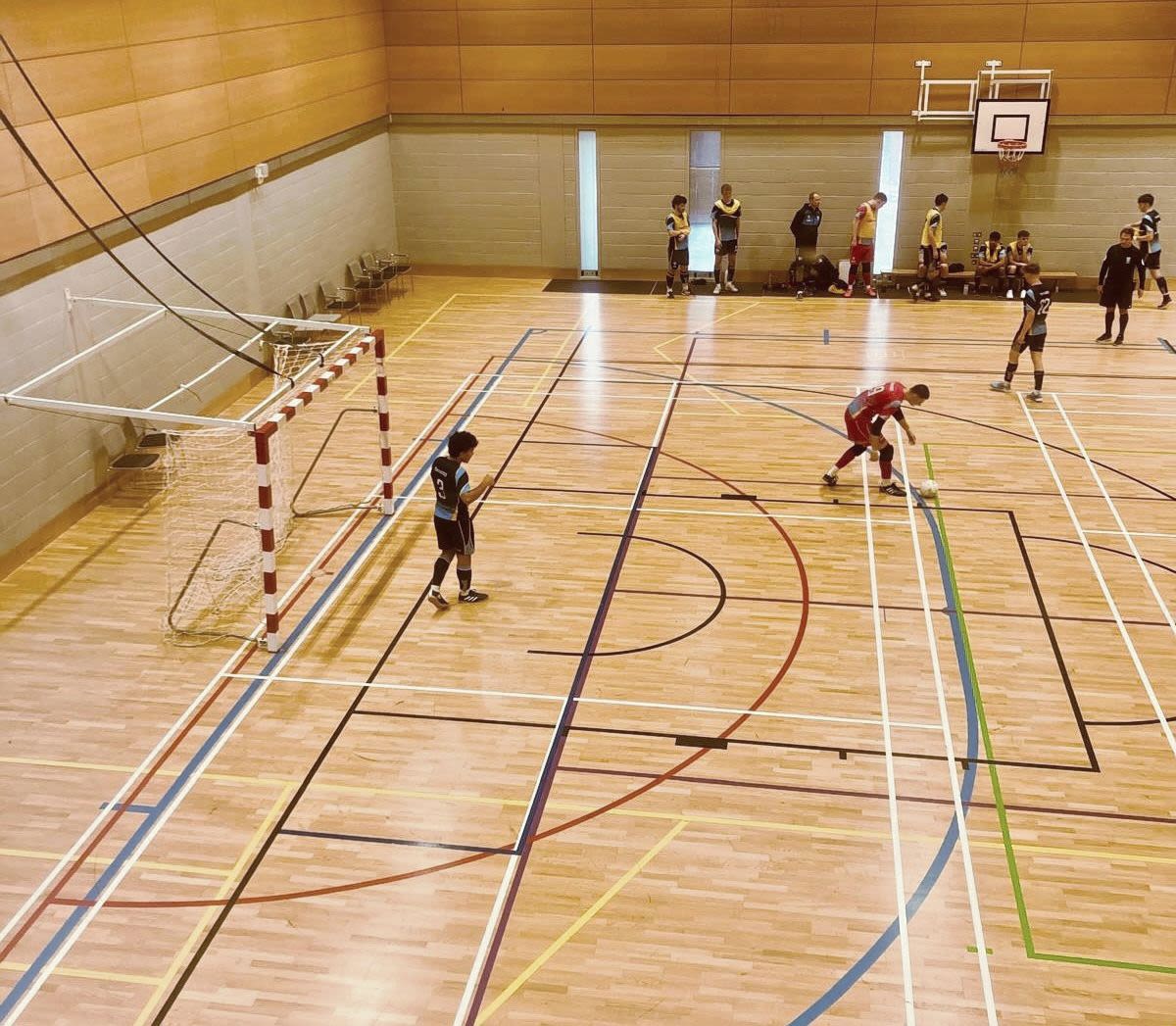English Futsal:
What is causing this meteoric growth?
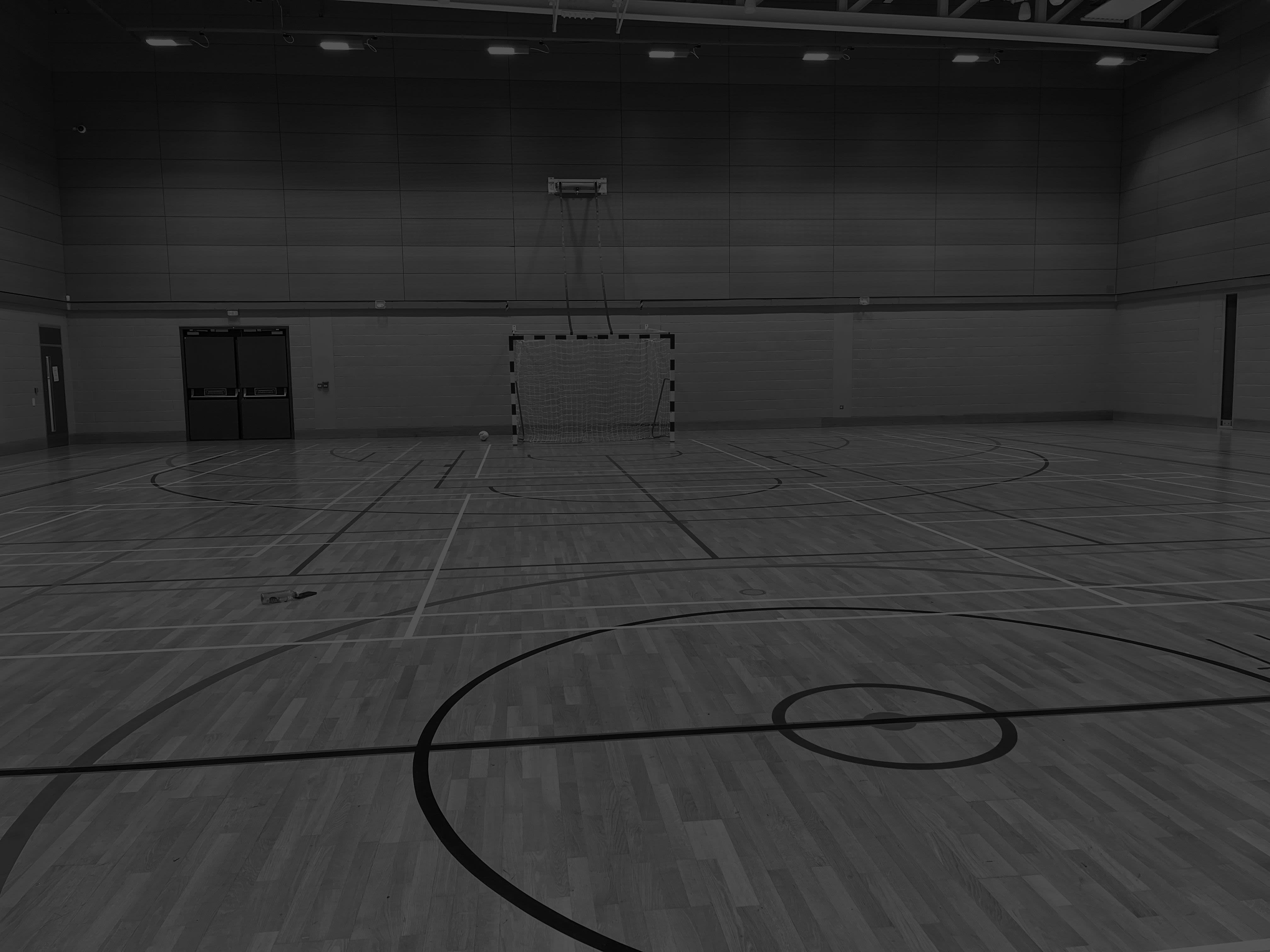

What is Futsal?
"It's a game for liars" is how Ben Stevens the founder of Total Futsal described futsal, "it's all about deceit."
The sport derived from South America known for its fast pace and skilful gameplay is continuing to grasp the hearts of sports fans across the country.
Sion Kitson, Head of Development and Technical at England Futsal said: "When people play, they tend to get hooked."
On face value, it may seem that futsal is very similar to football given the skills needed to play but, there is a lot more depth to it.
Hartpury head coach Pete Vallance overseeing his teams training session. Photograph: Daniel Quina Brito.
Hartpury head coach Pete Vallance overseeing his teams training session. Photograph: Daniel Quina Brito.
To answer the question of how noticeable the sports growth in England is, the key points to explore will be, the England national team, youth participation and coverage.
Whilst the sport has a rich history across South America, Eastern Europe and Western Europe, the strides that futsal is taking in England to become an established sport cannot go unnoticed.
"In the community there's an unwavering passion, for the people it's about making good things happen," Kitson says.
But to get an idea of the journey of futsal, we have to go back to Montevideo, Uruguay in the 1930s.
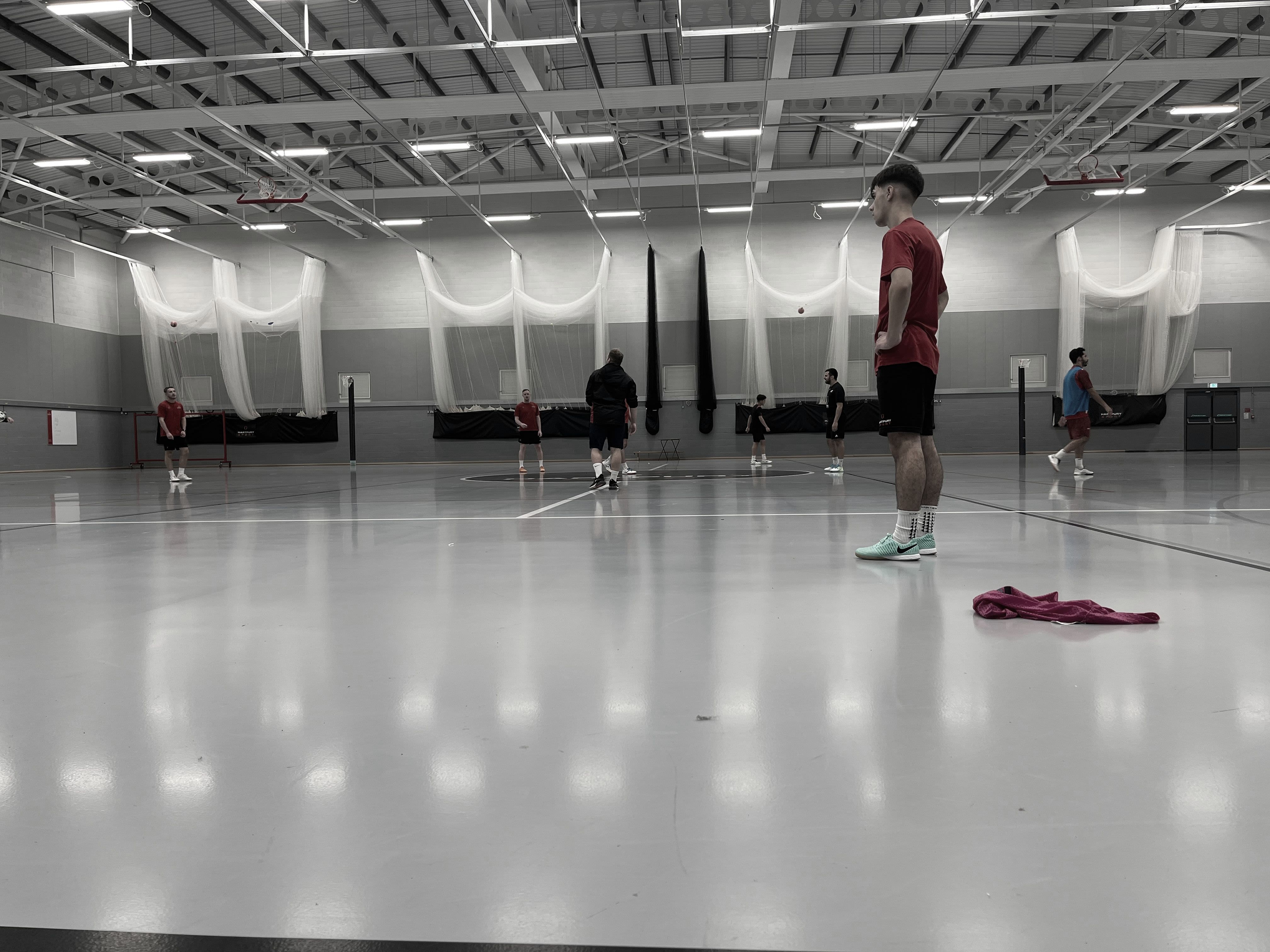
Montevideo origins to World recognition
The Historic Foundations
Futsal originated in Montevideo, Uruguay in 1930 by Argentine coach Juan Carlos Ceriani. The country were in the midst of football contagion as they were set to host the 1930 FIFA World Cup, which they went on to win.
This inspired Ceriani, who was the Physical Education Director at the YMCA centre in Montevideo, to organise informal games of football.
From this, he devised a set of rules for the game to add structure and regulation which started the spread of futsal across South America and eventually the world.
Futsal to the World
In 1971 Federation for Futebol de Sala (FIFUSA) was founded in Brazil where they hosted and won their debut tournament in Sao Paulo.
FIFA organised the World Championship in 1989 which were held in the Netherlands where new rules were introduced to improve the technical aspects of the game.
UEFA hosted their first European Championship in 2001.
These key landmarks have laid the foundations in order to continue the sports development and growth across the world.
We are still yet to see England make an impact on an international level and whilst it would be astute to assume that the Three Lions should be competing in major championships the truth is far from that.
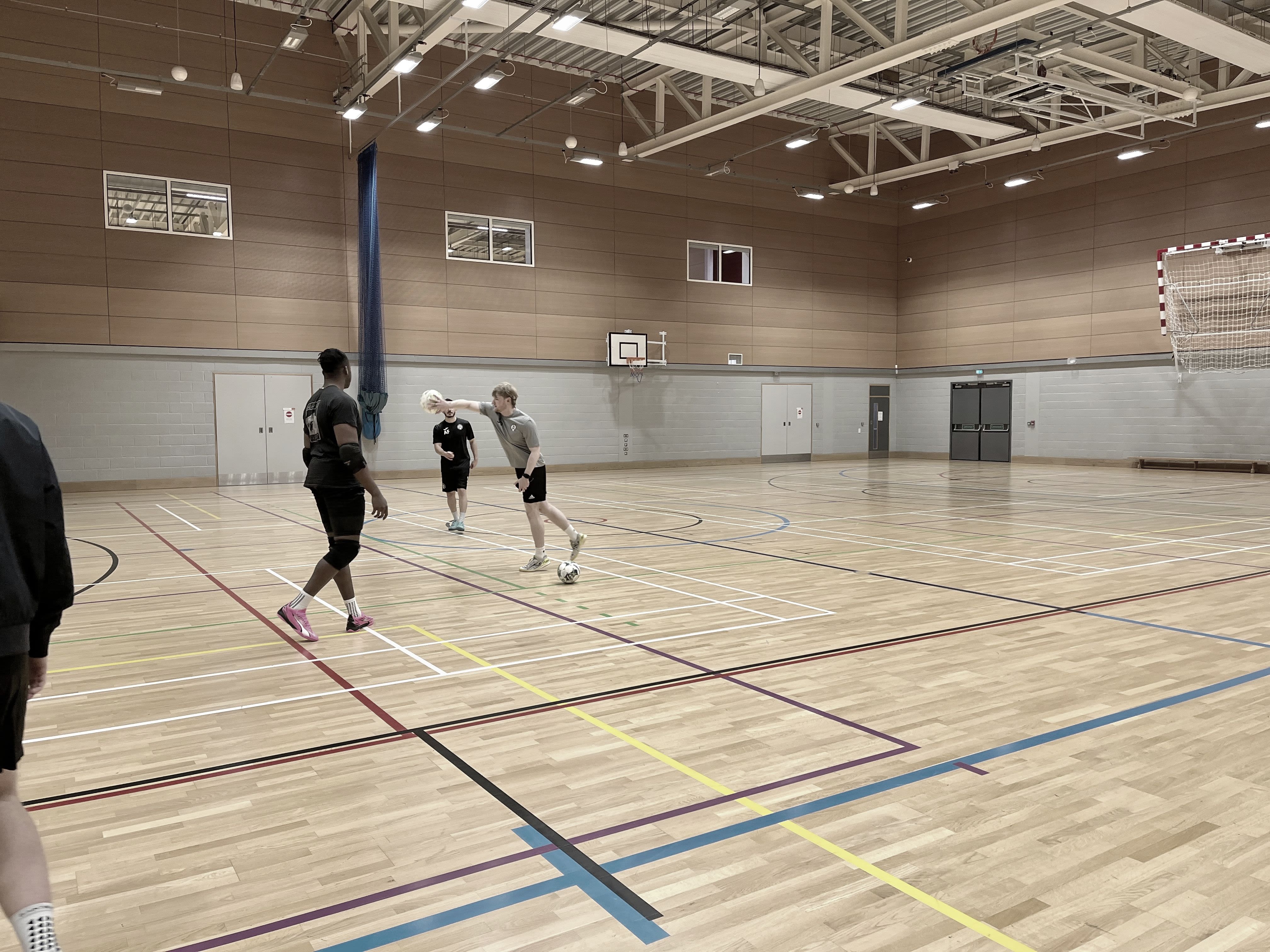
The National Team
The Backstory
England as a sporting nation are notoriously known all over the world for achievements like lifting the World Cup in 1966. However, silverware in futsal has been harder to come by.
Throughout their 21 years in action, the England mens team have not participated in a single World Cup or European Championship (final tournament).
Kitson said: "We were progressing. We were making the next round of qualification but just could not get over that final hurdle to make the final tournament."
Whilst they have not achieved glory at a major tournament, England have claimed silverware in the lesser recognised Four Nations against Scotland, Wales and Northern Ireland where they lifted the trophy in 2019.
However, Covid devastated the world in 2020. Due to futsal not being considered a professional sport in England, The FA cut its annual £900,000 funding which left the national team on pause until further notice.
"It was tough," Kitson said. "What’s the motivation for players, coaches and clubs to persevere that’s where the resilience kicks in.
"Four or five years have passed, and I know we’ve lost some people on the way, but others have stuck in and that just shows you what the game means to all involved.”
As the national futsal team was unavailable, the incentive for players to continue playing within the England system was hampered.
Stevens said: “Without that national team prospect, the incentive to stay involved declines.
"Futsal has to give them a reason to stay once they realise that they are decent at it which has to be that national pathway."
However, that all changed towards the end of 2022 as England Futsal was born.

England Futsal
England Futsal was designed to be a delivery partner for the FA with the hope of providing futsal opportunities across England.
In December of 2022, England Futsal were tasked to oversee the England under-19s European Championships campaign.
Under the management of Sion Kitson, the under-19s managed to make the main round of the competition after an unbeaten preliminary round.
Whilst they were not able to qualify for the final tournament, the side were held in high regard for their efforts.
Kitson said: “That 19’s group were pioneers with the shirt and represented their country brilliantly.”
The women’s national team was announced in January of 2024 as the first ever selection of women to represent England in futsal.
Recently, they played their first matches as a squad in the qualification for the Philippines 2025 World Cup.
Sion Kitson and Pete Vallance lining up next to the First ever Women's futsal squad. Sourced from Social Bull Media and England Futsal.
Sion Kitson and Pete Vallance lining up next to the First ever Women's futsal squad. Sourced from Social Bull Media and England Futsal.
The Lionesses missed out on the final tournament however, they managed to get their first ever win in an 8-0 victory against Moldova.
Stevens said: “They put a really good show for themselves out there and pioneering in creating the first set of female England Internationals is nothing but amazing.”
The growth of the national team cannot be studied with numbers, it has to be looked at from the way that the organisation has risen from the ruins of the Covid outbreak.
The under-19s team have demonstrated that the youth in English futsal are able to compete on an international stage.
Regarding the women's team, they have pioneered in being the first ever women's English national team to compete in a major tournament.
Finally, England recently made their return to competitive futsal in the qualification rounds for the 2026 European Championships. Whilst they lost to Bosnia in their opening game, they won 5-1 against Switzerland which will fill England Futsal with ambition for their future qualification matches in 2025.

What it takes to be an England Futsal Player
“We look for technical excellence, physical dominance, tactical understanding and emotional intelligence," says Kitson.
Whilst technical attributes are important for any sport, the fitness and durability required to play futsal is essential to remaining injury free.
He added: “They predominantly train twice a week and play on Sundays, they all go to the gym, but I like to challenge them.
“What does that gym work look like? How is that gym work relating to how you want to develop on court?"
Ben Young of Hartpury Futsal talking about the importance of strength and conditioning work in a short video. Filmed and edited by: Daniel Quina Brito.

"We often talk about the development of infrastructure in the wider game and the Youth Cup is the start of that."
Sion Kitson
Youth Participation
The National Futsal Youth Cup is currently being organised to host its second event for the 24/25 season to follow on from its success last season and the Pokémon Futsal Youth Cup years before.
In 2023, the Pokémon Futsal Youth Cup saw over a thousand teams from 32 countries take part which showed that there was an interest within the sport by children.
Sean Dye, the manager of Southampton Athletic said: “Having the figurehead of Pokémon in general just brings up the interest for young kids which was fantastic.”
Robbie Davenport lining up to take a practice penalty at the Solent Sports Complex. Photograph: Daniel Quina Brito.
Robbie Davenport lining up to take a practice penalty at the Solent Sports Complex. Photograph: Daniel Quina Brito.
Although this was a futsal tournament, football teams also participated. Dye added that a lot of football teams are dedicating to futsal to try the sport and that he noticed this happening in Southampton. He continued to add that there are more local regional leagues and that Junior Premier League teams are getting involved.
Whilst there are no published figures on participation rates across the tournaments tenure to demonstrate factual growth, the cup continues to return which shows promise that there is a high demand by parents and players to be involved.
Alongside England Futsal's contributions, clubs around the National Futsal Series have also shown interest in youth progression.
A screenshot showing three B teams in the National Futsal Series Tier 2 North. Photograph: Daniel Quina Brito.
A screenshot showing three B teams in the National Futsal Series Tier 2 North. Photograph: Daniel Quina Brito.
Across all the National Futsal Series regions from Tier 1 to Tier 3, there are 56 teams. Amongst these teams, there are seven B teams.
This means that one in eight of the competitive teams across the country are dedicated purely to youth development. Which shows a growth in opportunity for younger players to get involved.
Audio Captured by: Daniel Quina Brito
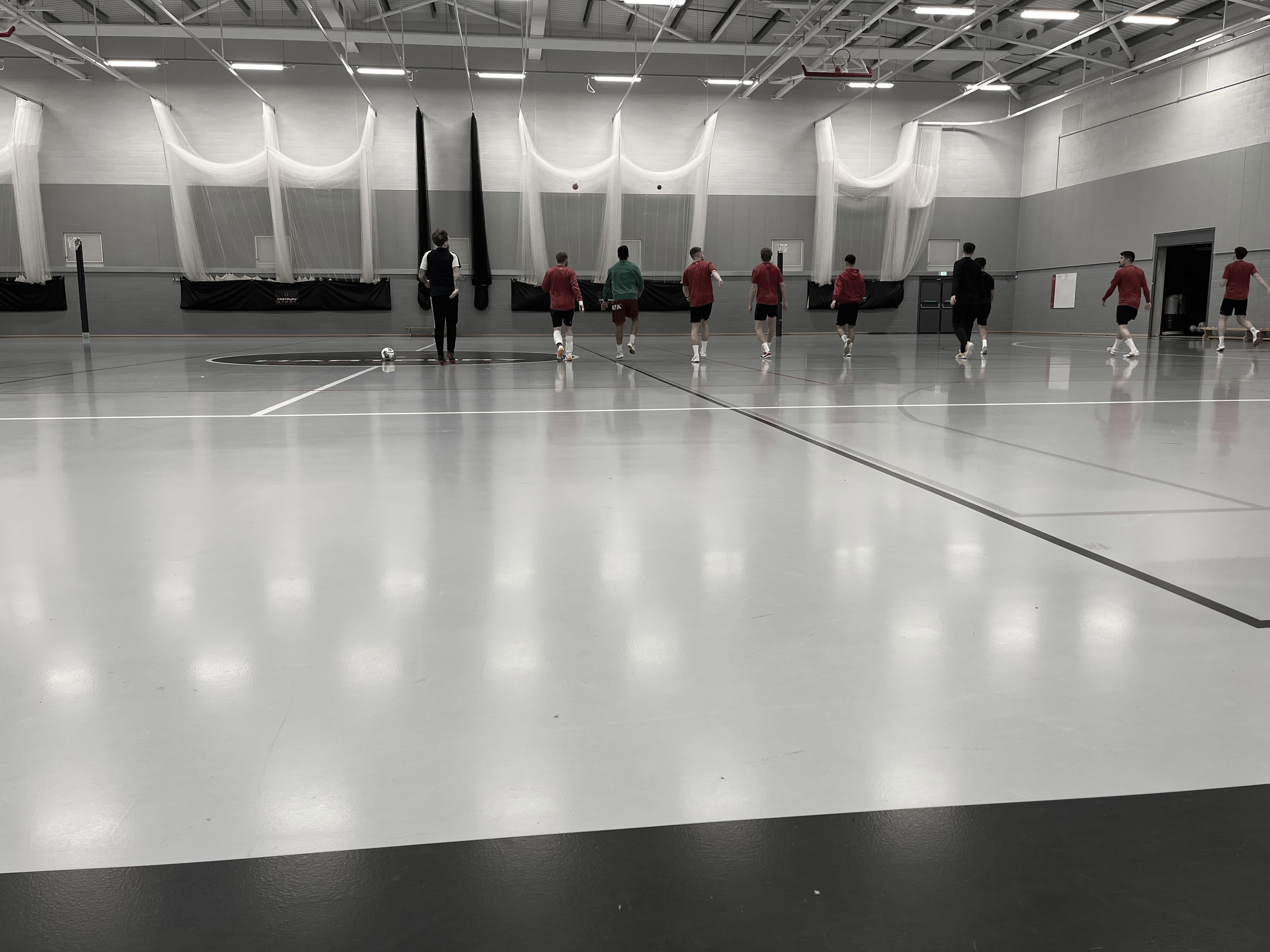
Coverage
TNT SPORTS
A screenshot from the Futsal Focus website showing how 60 thousand people tuned in to watch futsal on BT Sport on the opening weekend. Photograph: Daniel Quina Brito.
A screenshot from the Futsal Focus website showing how 60 thousand people tuned in to watch futsal on BT Sport on the opening weekend. Photograph: Daniel Quina Brito.
When talking about the growth of a sport, one of the main components is coverage. How is the sport going to be shown to get more recognition?
After the Covid Pandemic, BT Sports (now known as TNT Sports) made a deal with the National Futsal Series to stream 110 hours of male and female Tier 1 futsal across their channels.
Ben Stevens in action for the University of Liverpool's futsal team. Photograph: Daniel Quina Brito.
Ben Stevens in action for the University of Liverpool's futsal team. Photograph: Daniel Quina Brito.
Stevens said: “They had pundits who played in the Premier League and did full days for the NFS Super League, they really made an effort.”
Although the sport was being shown to a relatively novice audience, viewing figures on the opening weekend hit as high as 60,000.
Futsal would continue to be streamed on TNT Sports after the brand change but only for one year as at the end of the 23/24 season, TNT and the National Futsal Series parted ways.
On the surface, it may seem that futsal peaked at the start of their debut tenure on tv and slowly declined but the stats say otherwise.
A Bar Chart showing the growth in total viewership between 22/23 and 23/24 on TNT Sport. Photograph: Daniel Quina Brito.
A Bar Chart showing the growth in total viewership between 22/23 and 23/24 on TNT Sport. Photograph: Daniel Quina Brito.
Whilst the narrative is that futsal's viewership on TNT Sports was too low, the National Futsal Series reached 183,000 viewers in the 23/24 season which was a 97% increase throughout the 22/23 campaign.
A Bar Chart showing the growth in live viewership between 22/23 and 23/24 on TNT Sport. Photograph: Daniel Quina Brito.
A Bar Chart showing the growth in live viewership between 22/23 and 23/24 on TNT Sport. Photograph: Daniel Quina Brito.
In regard to real time viewers, last season saw a 47% increase in live viewers which went from 1900 to 2800.
Stevens said: “With live tv, futsal needs to market itself as tv product which is has not. You need production value otherwise you won’t attract anyone.”
One element of the sport that is a complete contrast to football is the value of the women's game. There were more viewers on average watching the female tournament than the male tournament from 2022 to 2024.
A Bar Chart showing the growth in average viewership between 22/23 and 23/24 for the male and female tournament on TNT Sport. Photograph: Daniel Quina Brito.
A Bar Chart showing the growth in average viewership between 22/23 and 23/24 for the male and female tournament on TNT Sport. Photograph: Daniel Quina Brito.
Whilst the improvement was only by 3% from 22/23 to 23/24, it is an achievement that is rare amongst female organisations in male dominated sports.
As of this season, the National Futsal Series partnered with Norwegian streaming company Joymo. They plan to stream 160 Tier 1 games with expectations to expand their coverage into the second division of the futsal pyramid for the 2025/26 season.
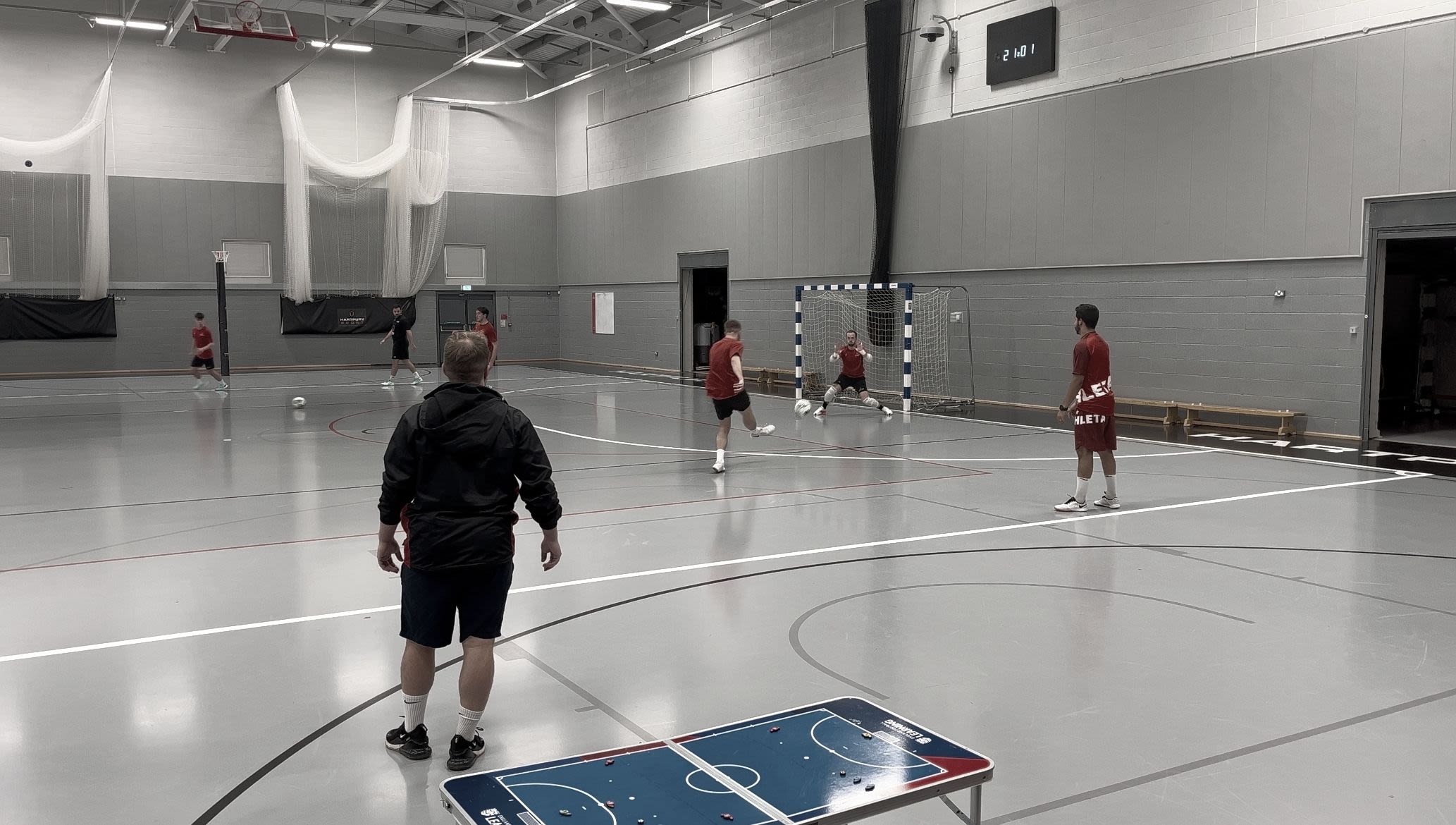
Media Outlets
In terms of media recognition, futsal has struggled to sustain any form of consistent coverage across the main media organisations. Due to this, media outlets for futsal have formed to give the sport a spotlight.
One of the leading futsal-based media accounts was founded by Ben Stevens with his outlet Total Futsal. The sole purpose of Total Futsal was to give the players in England the recognition they deserve.
A screenshot from the Total Futsal Instagram page. Photograph: Daniel Quina Brito.
A screenshot from the Total Futsal Instagram page. Photograph: Daniel Quina Brito.
“There was a bit of a gap in terms of the coverage it’s pretty non-existent in terms of independent futsal media," said Stevens.
“I just thought in football there are so many pages dedicated to the sport, and I thought that the futsal community would really appreciate it.”
Alongside being the founder of Total Futsal, Stevens has played futsal for East Riding and is currently a freelance journalist who has published a piece about futsal on BBC Sport.
A screenshot from the BBC Sport website showing Ben Stevens' article on futsal. Photograph: Daniel Quina Brito.
A screenshot from the BBC Sport website showing Ben Stevens' article on futsal. Photograph: Daniel Quina Brito.
The aim of his article on BBC Sport was to bring more recognition to futsal. Unlike the majority of news outlets, BBC have made efforts to start conversations around futsal.
The platform have published articles and posted a 16-minute audio segment on BBC Sounds but have struggled to make a commitment to post futsal consistently.
Stevens said: “Futsal has been described as too niche, there are not the numbers to warrant the interest.
"However, I do think a little bit of momentum is being built now, there was a piece in the Telegraph that was a headline piece so there are more eyes on it.”

The Future
Although futsal seems to have grown domestically, the journey has only just begun. Whilst growth has been achieved in a variety of areas, the sports potential success in England is still untapped. The question that needs to be asked is: What needs to be done to keep the sport on an upward trajectory?
This was narrowed down to three key points by Tier 2 Southampton Athletic manager Sean Dye which were: structure, visibility and funding.
Sean Dye organising the next segment of his training session at Southampton Athletic. Photograph: Daniel Quina Brito.
Sean Dye organising the next segment of his training session at Southampton Athletic. Photograph: Daniel Quina Brito.
“Futsal should not be behind a paywall, it was good to see the FA broadcast the games on YouTube although it was not cost effective," he said.
"An example that I have proposed to a lot of people before is funding all Tier 1 teams a VEO camera which can be edited and streamed to YouTube."
VEO cameras are devices used to record a wide variety of sports. What makes these cameras so popular within the sports community is its ability to capture both halves of a pitch without a need to pan the camera.
Dye proposed that with the footage collected, students could edit down the content to build work portfolios for future jobs applications.
Southampton Athletic on a water break as they wait to resume their session. Photograph: Daniel Quina Brito.
Southampton Athletic on a water break as they wait to resume their session. Photograph: Daniel Quina Brito.
In terms of visibility, the publication of Ben Stevens on the BBC was crucial for the sports acknowledgement in England, however, Dye argued that futsal news is extremely scarce. He said: “The women participated and got their first ever victory in the European Qualifiers and not a word was mentioned."
The final point Dye made regarding the future growth of futsal was about the importance of sponsorships.
In the National Futsal Series the current rules are that a kit can only have four sponsors, because of this, the prices for each space on the kit will be elevated in order to maximise revenue.
What Dye presented was the idea for more sponsors on the kits in order to lower the cost whilst increasing the amount of potential sponsors and revenue to reinvest.

The Road Ahead
Futsal has been on a journey in England. It has always been an upwards fight against the sports like football and rugby as the country has not got the culture of futsal engrained into their sporting DNA yet.
Bournemouth University in action against Solent University at the Solent Sports Complex. Photograph: Daniel Quina Brito.
Bournemouth University in action against Solent University at the Solent Sports Complex. Photograph: Daniel Quina Brito.
But, could that change?
England Futsal have delivered in building a strong platform, based off on competition performances, for the mens, women's and under-19 teams.
There is a continued effort to encourage younger players to enter the sport whether it be at a youth level with the opportunity to take part in the National Futsal Youth Cup or the National Futsal Series with the various 'B' teams across the country.
Although TNT Sports are no longer partnered with futsal, the pursuit to provide more news on futsal by the news outlets as well as the potential for more stories on major news platforms is nothing but promising.
Referring back to the growth of futsal in England, it is clear to see the strides that the sport has taken to become more recognised.
Whilst futsal today is in a better place than it has been since Covid, there is definitely potential for a very promising future in England.

